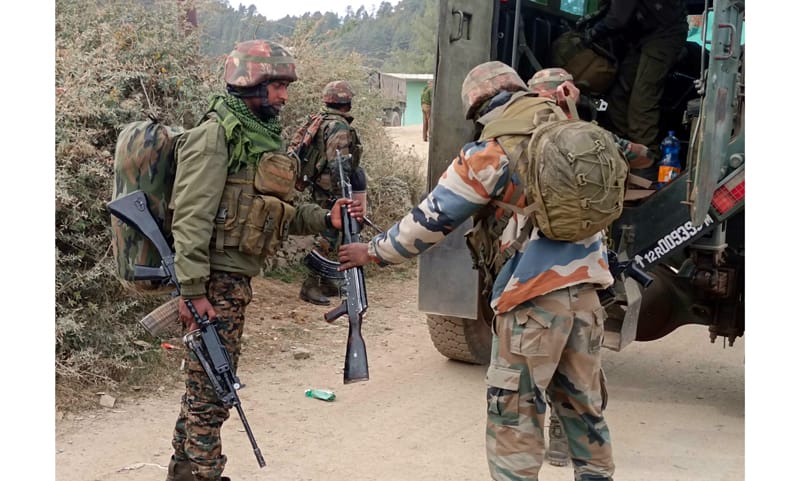A Tug of War Between Merit and Mandate
By: Javid Amin
Srinagar 09 June 2025: In Jammu & Kashmir (J&K), a storm brews quietly but persistently. It’s not in the streets, but in examination halls, on student desks, and inside hearts brimming with ambition. It’s a crisis of confidence in the state’s reservation policy, which many now say has disproportionately tilted the scales against open merit candidates. As June 10 approaches—the deadline for the Sub-Committee on Excessive Reservation—students, scholars, and civil society await with bated breath for reforms that could define the future of an entire generation.
This article explores the issue in deep detail, shedding light on:
- The current state and history of J&K’s reservation policy
- Disparities in qualification criteria
- Voices of affected students
- Insights from policy experts and state comparisons
- Reform proposals and their implications
Background: The Evolution of Reservation in J&K
Historical Context
Jammu & Kashmir’s reservation policies were initially structured to uplift historically marginalized groups, aligning broadly with India’s national affirmative action model. However, political shifts, socio-economic pressures, and regional lobbying have altered the composition and scope significantly over the years.
Until recently, reservations in J&K stood at 43%. However, with the grant of Scheduled Tribe (ST) status to the Pahari community, it soared to an unprecedented 70%. This sharp spike has raised eyebrows, especially among open merit candidates and policy experts, as it far exceeds the 50% ceiling recommended by the Supreme Court.
Timeline of Reservation Expansion:
- Pre-2010: Reservation at 39%, in line with national average.
- 2019: After abrogation of Article 370, new groups began lobbying for inclusion.
- 2023: ST status granted to Paharis; reservations leap to 70%.
The Controversy: Reservation Even in Question Papers?
Many open merit aspirants are raising alarm over what they call ‘structural bias’ baked into the recruitment and examination systems.
Disparity in Cut-Off Marks
Open merit candidates often require 40% overall and at least 33% in each section to qualify, while reserved category candidates qualify at 35% overall with only 33% per section. In highly competitive exams, even a 1% margin can decide fate—5% is massive.
Why This Matters
This discrepancy undermines the very concept of ‘meritocracy’. Candidates preparing under tougher benchmarks feel demoralized and excluded. “We’re not against reservation,” says Mubeen, a postgraduate from Srinagar. “But how is it fair that I need 40% to qualify while another gets through with 35%, just because I wasn’t born in a reserved category?”
Voices from the Ground: What Students Are Saying
Anees Fatima, Kupwara
“I’ve been preparing for JKSSB exams for two years. Despite scoring above 38%, I didn’t make the cut because I belong to open merit. Meanwhile, others with lower marks did. It’s not about jealousy; it’s about justice.”
Parvaiz Ahmad, Pulwama
“My cousin and I prepared together. I belong to OM, he belongs to a reserved category. He cleared it with 34%, and I didn’t with 39%. The system rewards labels, not labor.”
These are not isolated experiences. They are part of a growing, heart-wrenching trend that signals the urgency of reform.
JKSSB’s Last-Minute Shock: A Betrayal?
Just days before the reservation sub-committee’s deadline, JKSSB released 75 Naib Tehsildar posts, of which:
- 45 were reserved
- Only 30 were open to all (including reserved category applicants)
- In practical terms, only 15–18 seats may go to open merit students
This last-minute notification has been dubbed a “betrayal” by aspirants who had placed their trust in the National Conference’s promises of fairness and reform.
JKSA’s Intervention: A Blueprint for Reform
The Jammu & Kashmir Students Association (JKSA) released a detailed policy report urging the government to:
Key Recommendations:
- Caste-Based Socio-Economic Census – To identify truly deserving beneficiaries
- Sub-Categorization Within Reserved Categories – Prevent elite capture within castes
- Rationalize EWS Criteria – Ensure fair access for the economically poor
- Restore the 60:40 Open Merit Ratio – Balance merit and representation
JKSA’s Stand
“We’re not against reservations,” says Nasir Khuehami, JKSA Convenor. “We’re against a flawed, disproportionate system that benefits the few while punishing merit.”
Comparative Study: J&K vs Other States
J&K vs National Average
| Policy Element | J&K | National Average |
|---|---|---|
| Reservation % | 70% | 50-60% (usually capped at 50%) |
| Caste Census | ❌ No | ✅ Bihar, Karnataka |
| Sub-categorization | ❌ No | ✅ TN, Maharashtra |
| Clear EWS Criteria | ❌ No | ✅ Most states |
| Open Merit Ratio | <40% | ≥50% |
Lessons from Other States:
- Bihar: Caste-based census refined reservation allocations
- Karnataka: Sub-categorization of OBCs prevented monopolization
- Tamil Nadu: Balanced extended reservations with merit-based entry
- Maharashtra: Rationalized EWS eligibility for transparency
These reforms brought more equity without diminishing merit.
The Psychology of Injustice: Damage Beyond Data
When merit is sidelined, it doesn’t just deny jobs—it chips away at self-worth. It discourages effort, fuels resentment, and erodes trust in the system. Many young aspirants are now questioning whether hard work has any value in a system where caste outweighs competence.
Way Forward: How the Govt Can Act Now
Immediate Actions:
- Issue interim directives to halt disproportionate reservations until the sub-committee report is implemented.
- Restore the 60:40 ratio to rebalance fairness.
- Clarify EWS guidelines to include genuinely deserving families.
Long-Term Actions:
- Enact a caste-based socio-economic census.
- Set up grievance redressal forums for unfair rejection claims.
- Engage academia, civil society, and students in policy consultations.
A Final Word: The Mandate of Merit
This isn’t just a student issue—it’s a social justice issue. The youth of Kashmir deserve more than slogans and empty promises. They deserve policy shaped by reason, not politics. The future of J&K depends not on how we distribute entitlements, but how we reward effort.
To Omar Abdullah and the NC-led government, this is your moment. History is watching. Youth is waiting.

